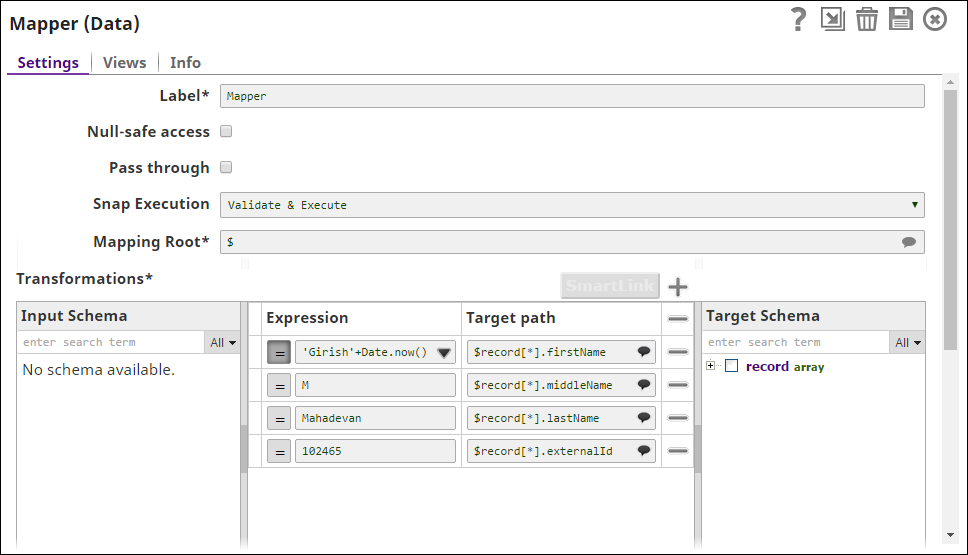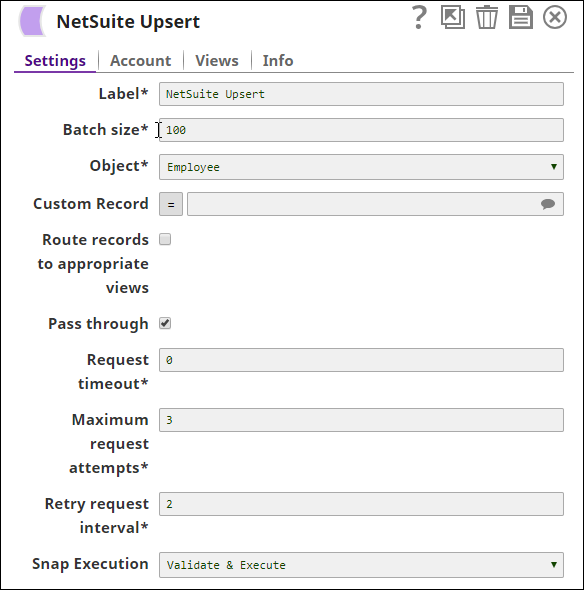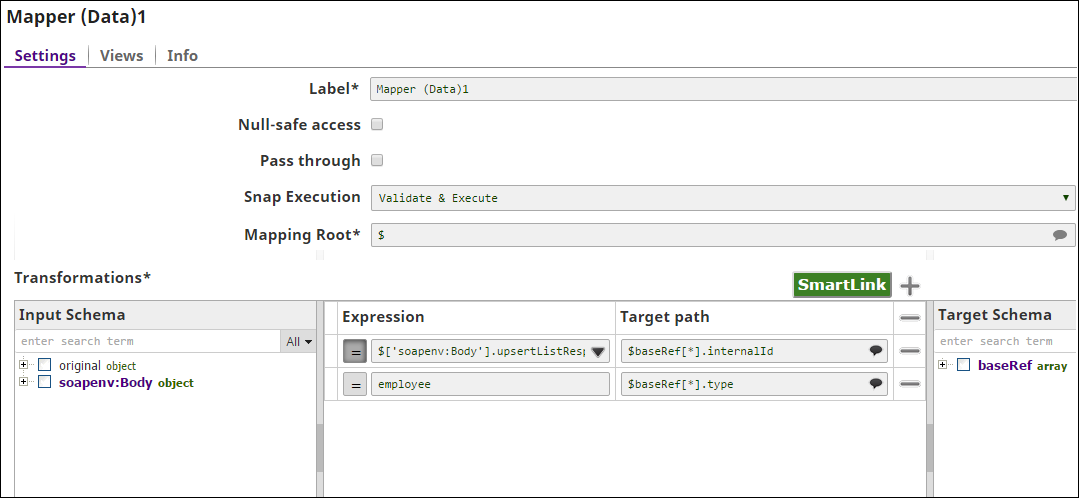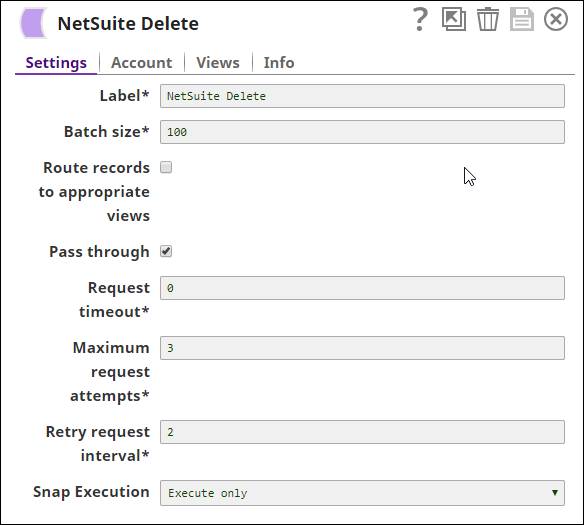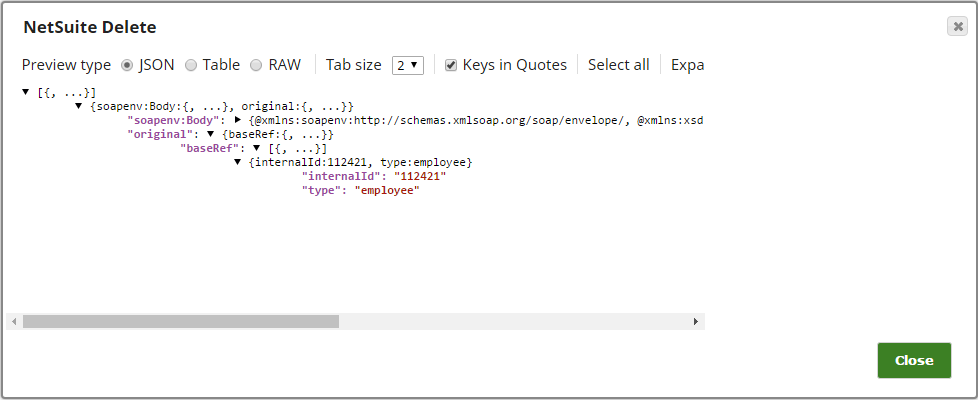On this Page
| Table of Contents | ||||
|---|---|---|---|---|
|
Snap type: | Write | |||||||||||||
|---|---|---|---|---|---|---|---|---|---|---|---|---|---|---|
Description: | This Snap provides the ability to delete records in NetSuite based on a given list of internal IDs and object types. The fields that can be set on the object are provided on the input view of the Snap and can be mapped using an upstream Data or Structure Snap. This Snap batches up to 100 records per request.
| |||||||||||||
| Prerequisites: | [None] | |||||||||||||
| Support and limitations: | Works in Ultra Pipelines. | |||||||||||||
| Known Issues: | This Snap currently does not support custom records. | |||||||||||||
| Account: | This Snap uses account references created on the Accounts page of SnapLogic Manager to handle access to this endpoint. See NetSuite Account for information on setting up this type of account.
| |||||||||||||
| Views: |
| |||||||||||||
Settings | ||||||||||||||
Label | Required. The name for the Snap. You can modify this to be more specific, especially if you have more than one of the same Snap in your pipeline. | |||||||||||||
Batch size | Required. The maximum number of input documents to batch in a single request. Set to 1 to make a separate request for each input document. Default value: 100 | |||||||||||||
Route records to appropriate views | If selected, the Snap parses the response and routes resulting records to the output view or the error view depending on the resulting status: success or failure. Default value: Not selected | |||||||||||||
Pass through required | Required. If selected, the Snap passes the input document to the output view under the 'original' key. If not selected, the input document is not passed through to the output view. The error view always has an input document in each error document whether this property is selected or not. This property matters only if the "Route records to appropriate views" property is selected. Default value: Selected | |||||||||||||
Request timeout | Required. The timeout for the web service call (in seconds). A value of 0 indicates no timeout. Example: 0 | |||||||||||||
Maximum request attempts | Required. Specifies the maximum number of attempts to be made to receive a response. The request is terminated if the attempts do not result in a response. Default value: 3 | |||||||||||||
Retry request interval | Required. Specifies the interval (in seconds) between two successive requests. A retry happens only when the previous attempt resulted in an exception. Default value: 2 | |||||||||||||
|
| |||||||||||||
| Note |
|---|
This Snap does not currently support custom records. |
Troubleshooting
| Multiexcerpt include macro | ||||
|---|---|---|---|---|
|
Examples
Example #1
Following example will illustrate the usage of Delete Snap. In this example we will delete two account records by internal ID as a batch operation. One of the input documents deletes a record successfully and the other fails.
Sample pipeline looks as shown below:
The input documents to the Snap are as following:
The output document at the output view is as following:
The error document at the error view is as following:
Example #2
The following example will illustrate the usage of the Delete Snap. In this example, we update an employee record using the NetSuite Upsert Snap, which we later delete using the Delete Snap.
In the pipeline execution:
Mapper (Data) Snap maps the employee details to the input fields of NetSuite Upsert Snap:
NetSuite Upsert Snap updates an employee record using the Employee object:
Mapper (Data)1 Snap maps the output of the NetSuite Upsert Snap to the input fields of NetSuite Delete Snap:
NetSuite Delete Snap deletes the employee record based on the supplied external ID. When the NetSuite Delete Snap is saved, it generates the input schema automatically:
After the pipeline executes, the NetSuite Delete Snap shows the following data preview:
| Insert excerpt | ||||||
|---|---|---|---|---|---|---|
|
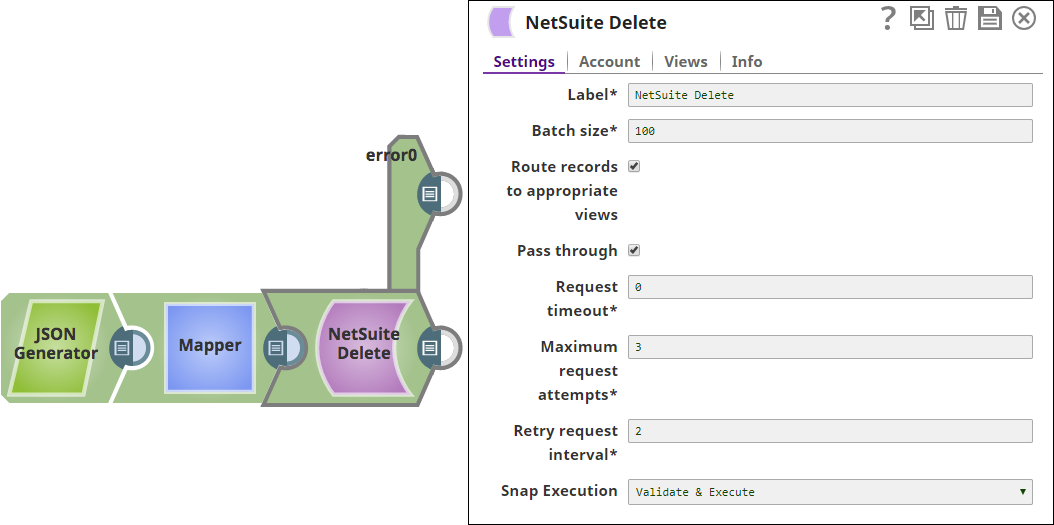
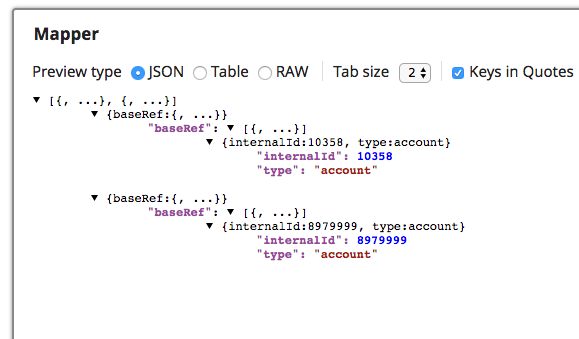
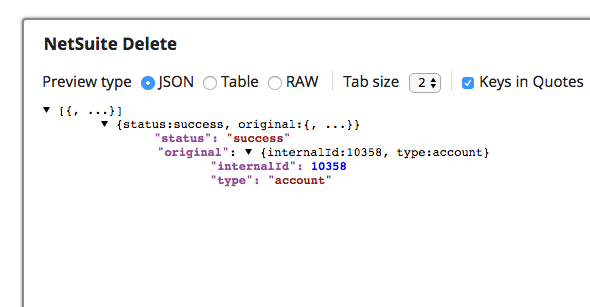
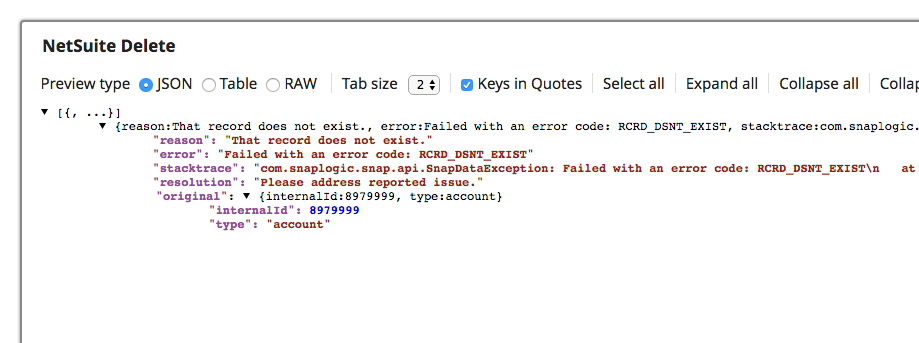
.png?version=1&modificationDate=1490273269983&cacheVersion=1&api=v2)
